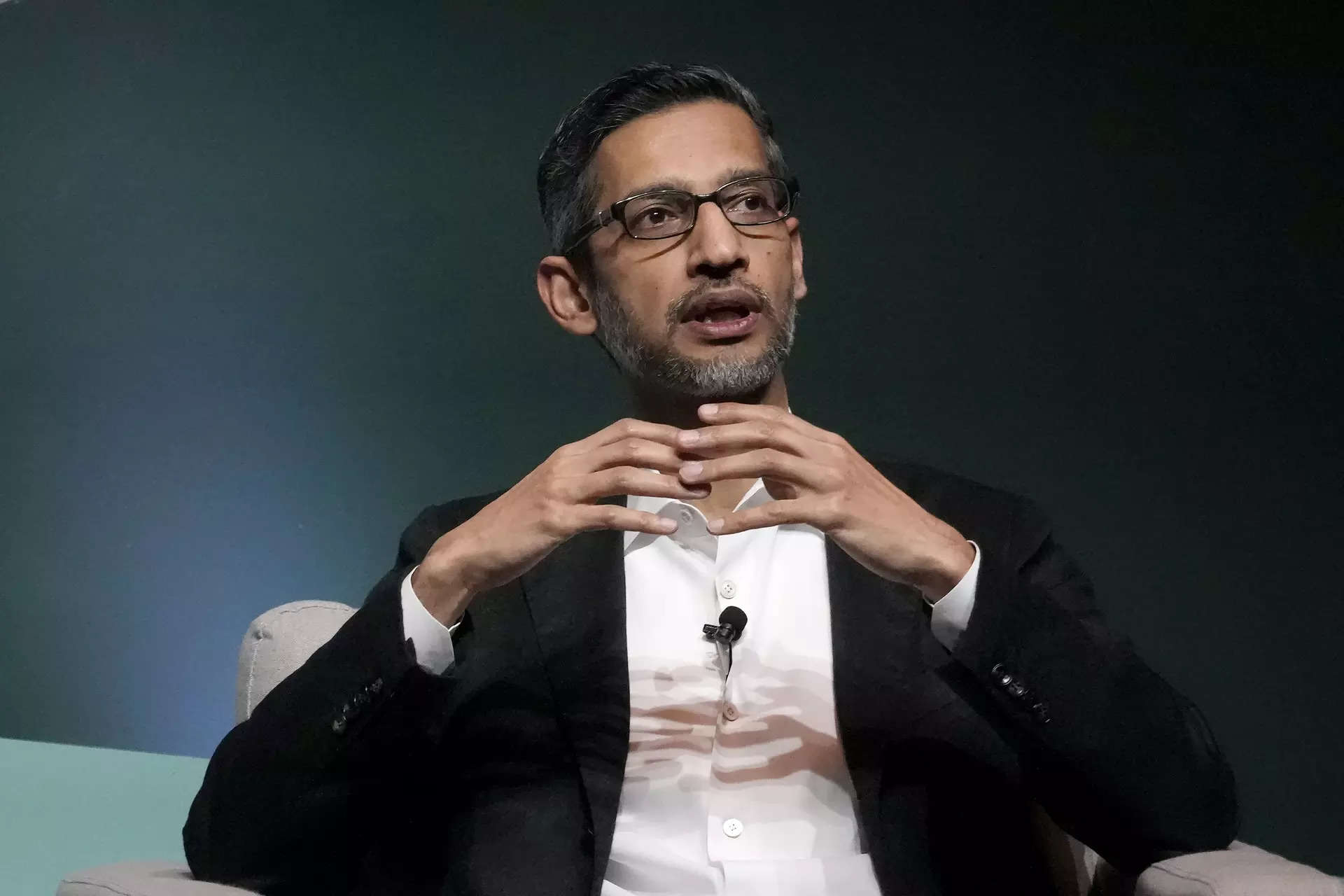
For India and other emerging countries, technology should provide opportunities to leap forward, he said Sundar Pichaichief driver of Googling during an international media panel here on Wednesday.
“India was never going to cross the developed world in terms of personal computer penetration, but on mobile, more people got access as a percentage of the population than the previous generation. People didn't have landlines, but most people got mobile phones. With every technological shift you have a better chance of driving that penetration. This is really true with AI,” Pichai told reporters.
Pichai, who is also the CEO of AlphabetGoogle's parent company, spoke a day after announcing several Google innovations in his keynote address at Google I/O connect, the company's annual developer conference.
“AI tools for many of our products… India is the number one country in terms of user base. To serve them, we want to offer the same AI tools. We are seeing a lot activity of the developer from India already on top of our AI platforms. I think it's going to be an exciting moment. India will be well positioned if the shift to AI takes place,” he said.
Pichai was joined by Elizabeth Reid, vice president and chief search officer; James Manyika, senior vice president, technology and society; and Koray Kavukcuoglu, chief technology officer of Google Deepmind.
“As we make more progress with AI, we need to bring more perspectives into the field. We need to engage social scientists in AI as we do more in the field and think about responsible AI,” Pichai said.
Elections and AI
Commenting on deepfakes and synthetically generated content, at a time when elections are underway in India, while the US and several other countries are nearing polls, he said: “We are going through a year where one in three people (in the world)) participate in the election process, which is beautiful in itself and worth celebrating. We have all come a long way as an industry. At Google we have invested in this election integrity as our top priority as a company, especially in products like Search and YouTube.”
As the company deploys AI and AI-enabled red-teaming, it aims to stay ahead of these issues, he said. Google conducts research to understand patterns in the world and reports on them, he added.
“Where necessary, we share information with the appropriate governments. Much progress has been made. That said, given the pace of technological advancement with deepfakes, we are still in a moment where as a society we are able to judge what is real or not. With a combination of all the work we're doing this year, I'm cautiously optimistic about doing our part and doing well. The stakes will be higher in the future. he said.
Elizabeth Reid, vice president and head of search at Google, said that while human curiosity is limitless, access to information is limited.
“Do you have access to information in your language? Can you access it in a form you understand? What's exciting about Gemini and the age of AI is the opportunity to unlock many more of those questions and make it easier. That we have to do more work so that you have to do less work when you're trying to get information and explore your curiosity,” she said.
James Manyika, senior vice president of technology and society at Google, said the possibility of what we can do now in science is breathtaking and a lot has happened in the past year.
“We announced Med-Gemini, a preferred Gemini-based model for healthcare and aligned with health data, which will have an incredible impact. It can process images, DNA sequences and general information to help doctors. AlphaFold 3 went from just making protein structures to DNA, RNA, ligands and more, and how they interact,” he said.
AlphaFold 3 is a new AI model developed by Google DeepMind and Isomorphic laboratories. By accurately predicting the structure of proteins, DNA, RNA, ligands and more, and how they interact, it aids in understanding the biological world and drug discovery.
“It is very important to understand how the brain works. We were able to show the first map of a small part of the human brain. We worked together on this Harvard for and many others. We have 1.8 million people from 119 countries who have access to this. Many of them are working on neglected diseases that are otherwise very difficult to work on,” Manyika said.
(The reporter was at Google I/O in Mountain View at Google's invitation)


